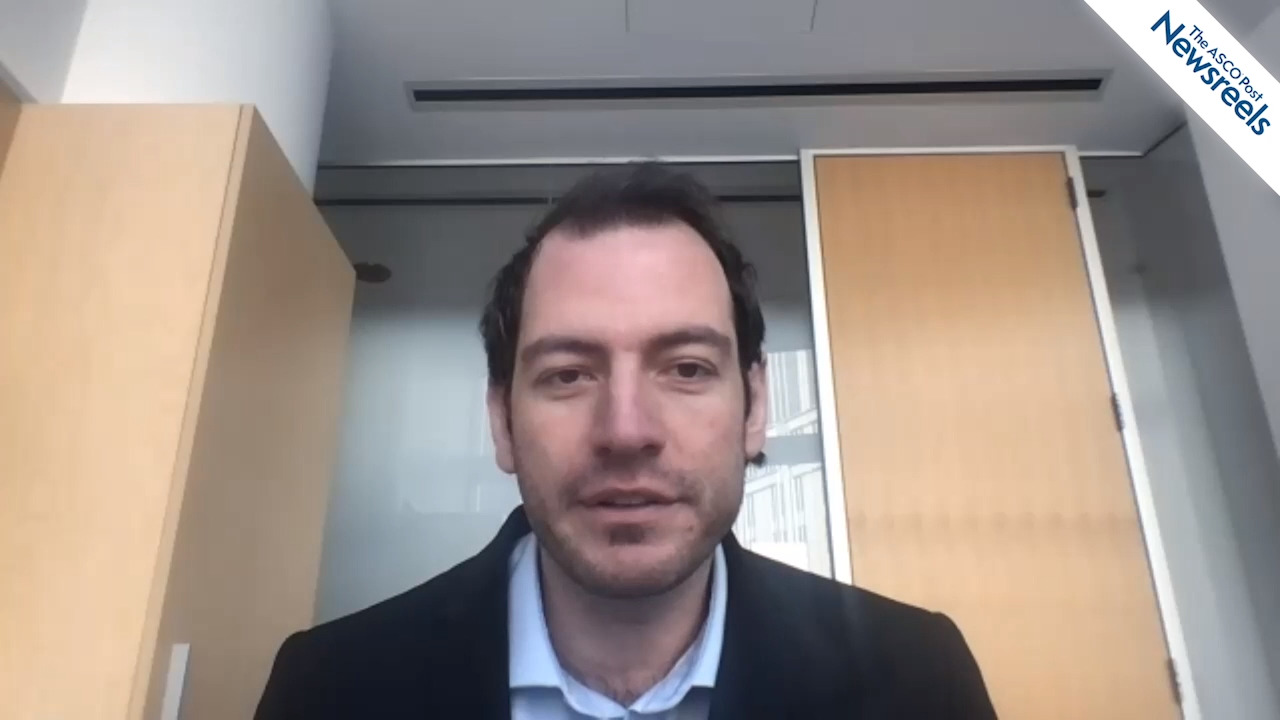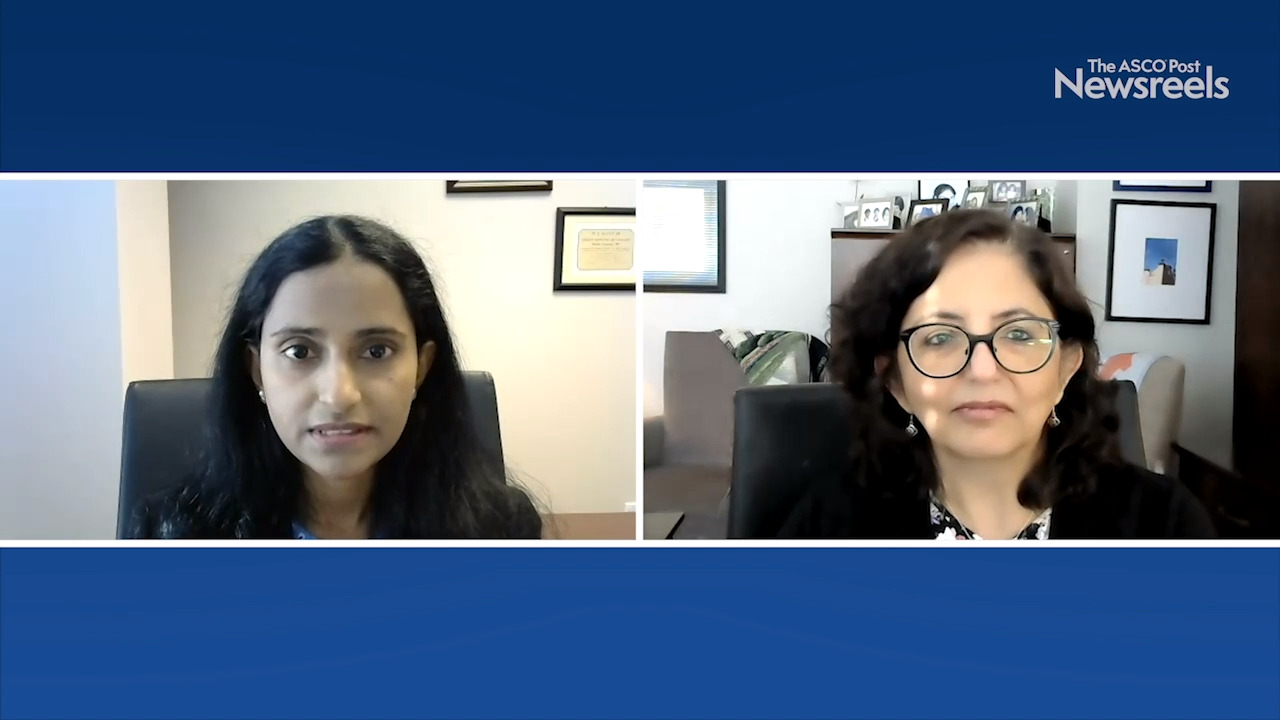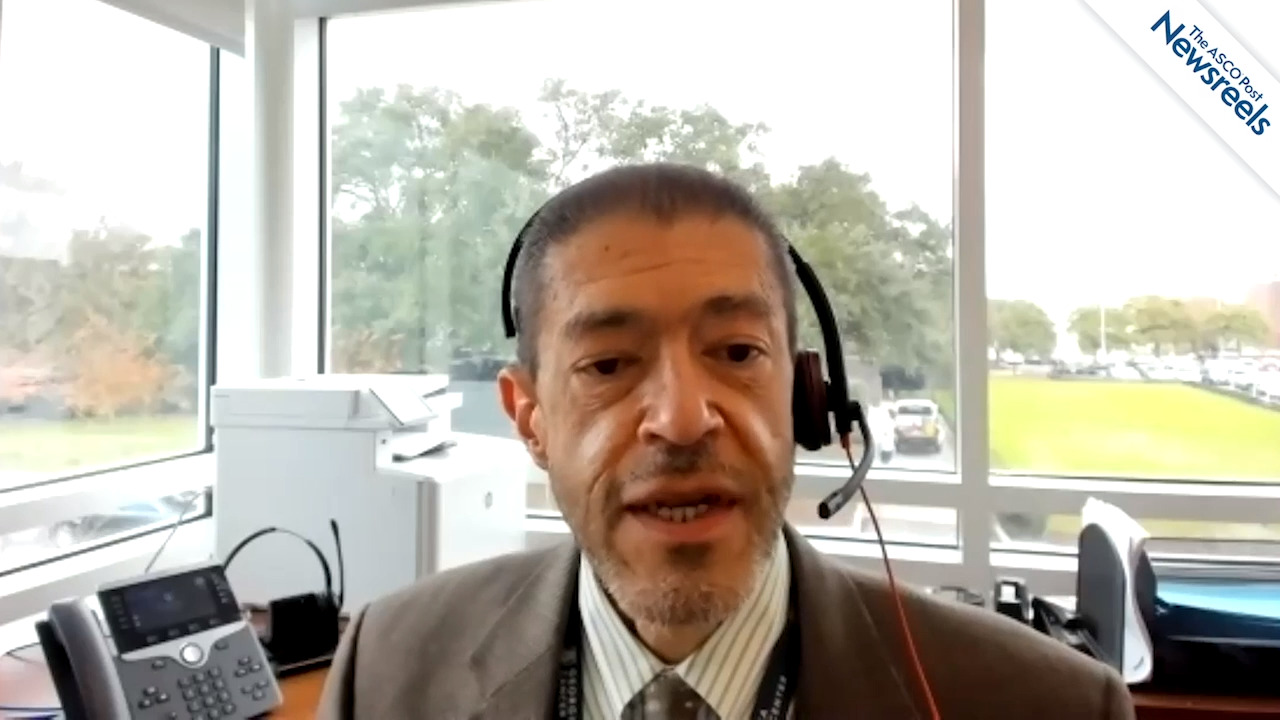Caron A. Jacobson, MD, on Treating Large B-Cell Lymphoma With Axicabtagene Ciloleucel
2020 ASH Annual Meeting & Exposition
Caron A. Jacobson, MD, of the Dana-Farber Cancer Institute, discusses results from the ZUMA-9 C2 study, an ongoing trial that is exploring axicabtagene ciloleucel in patients with relapsed or refractory large B-cell lymphoma (Abstract 2100).
The ASCO Post Staff
Christian Marinaccio, PhD Candidate, of Northwestern University, describes research he is conducting in the laboratory of John D. Crispino, PhD, which shows the loss of the tumor suppressor gene LKB1/STK11 facilitates progression of myeloproliferative neoplasms to acute myeloid leukemia (Abstract 1).
The ASCO Post Staff
Jyoti Nangalia, MBBChir, of Wellcome Sanger Institute and the University of Cambridge, discusses how her team used large-scale whole-genome sequencing to precisely time the origins of a blood cancer and measure how it grew. The information could provide opportunities for early diagnosis and intervention (Abstract LBA-1).
The ASCO Post Staff
Smita Bhatia, MD, MPH, and Radhika Gangaraju, MD, both of the Institute for Cancer Outcomes and Survivorship, University of Alabama at Birmingham, discuss findings that showed survivors of bone marrow transplants are at a 7- to 12-fold higher risk of coronary heart disease than a sibling comparison group. They recommend aggressive management of cardiovascular risk factors to prevent morbidity from heart disease in this patient population (Abstract 73).
The ASCO Post Staff
Jorge E. Cortes, MD, of the Georgia Cancer Center at Augusta University, reviews four important studies of treatment advances in chronic myeloid leukemia (CML): nilotinib vs dasatinib in newly diagnosed disease; final 5-year results from the BFORE trial on bosutinib vs imatinib for chronic phase (CP) CML; data from the OPTIC trial on ponatinib for CP-CML; and a novel class of mutated cancer-related genes associated with the Philadelphia translocation (Abstracts 45, 46, 48, 49).
The ASCO Post Staff
Ari M. Melnick, MD, of Weill Cornell Medicine, discusses the BCL10 mutation in patients with activated B-cell–like diffuse large B-cell lymphoma, and his study results which showed that the mutation should be considered as a biomarker for ibrutinib resistance so that alternative targeted treatments can be prioritized (Abstract 3).





